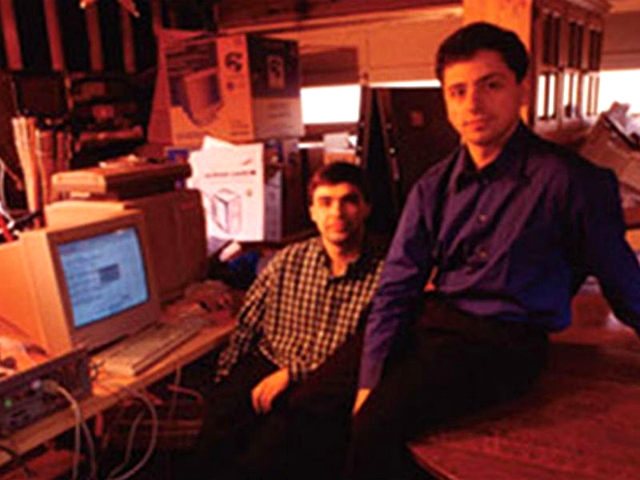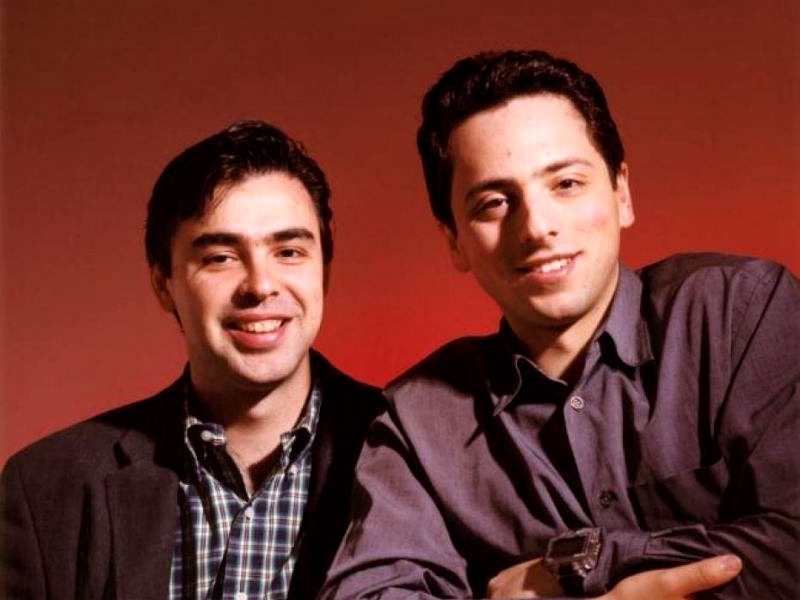Google turns 21: How two Stanford University whiz kids accidentally built a tech empire

Google is everywhere. It's behind the world's most popular mobile operating system and map, one of the most successful email services ever, and has even expanded into the finance, wearables and transport sectors. What's more, it probably still serves as your browser home page (or just a means of finding out whether you're connected to the Internet or not).
The still-relatively-young company, which turns 21 today, has come a hell of a long way since its inception in the late 90s, and looks well capable of dominating each and every avenue it decides to enter. However, the company had very humble, and indeed slightly odd, beginnings.
Back in 1995, Sergey Brin and Larry Page met each other for the first time and, plainly, they didn't exactly get off on the right foot. At the time, Brin was a 21-year-old second-year student at Stanford University, showing prospective new first-years around the campus. Page was 22, and had just graduated from the University of Michigan. "I thought he was pretty obnoxious," Page said of Brin to Wired in 2005. "He had really strong opinions about things, and I guess I did, too".
Page enrolled a short while later and chose to base his dissertation on the World Wide Web; specifically on how the various pages of the Internet are interlinked. He called the project 'BackRub', and his first task was to build an effective web crawler to get things moving along.
Brin, a math prodigy who had never quite settled on a single assignment, was drawn to Page's project and decided to get involved. "I talked to lots of research groups and this was the most exciting project," he said of his move.
The duo then successfully managed to develop an algorithm -- named 'PageRank' -- that was able to analyze backlinks and thus rank webpages by importance and popularity. All they had to do was feed the system a URL and wait for it to return a list of webpages, with the most important featured at the top. It was only then that they realized what they had created: an Internet search engine that was even more accurate than AltaVista.
In August 1996, Page and Brin released the first version of their newly-created tool to Stanford University students and it was an instant hit. Without enough money to purchase computing resources that would enable them to maintain the rapidly-expanding system, they borrowed bits and pieces from various Stanford computer departments, and turned Page's dorm room into their own lab. Brin's bedroom became an office.
Astonishingly, by autumn 1996, BackRub had grown to such an extent that it frequently brought down Stanford University's Internet connection. The powers that were didn't come down hard on the boys though.
Despite their successes, Page and Brin were initially unwilling to start up their own business. The former's father, a professor, passed away during Page's first year at Stanford, and he reportedly intended to complete his PhD in his honor. Brin, by his own admission, was also reluctant to leave the safety of Stanford.

"Look, if this Google thing pans out, then great. If not, you can return to graduate school and finish your thesis," is what his adviser told him, according to Brin, to which he apparently replied, "Yeah, okay, why not? I'll just give it a try".
Somewhat frustratingly, the story of how the company got its name isn't particularly clear. Google's website simply says that it is "a play on the word 'googol', a mathematical term for the number represented by the numeral 1 followed by 100 zeros," and "reflects Larry and Sergey's mission to organize a seemingly infinite amount of information on the web".
 The googol link is unmissable. However, whether Page or Brin came up with 'Google' is debatable. It has been suggested that, while searching for an unregistered domain, a friend of Page spelled 'googol' incorrectly, and Page like the result. The story alleging that the company's first investor, Andy Bechtolsheim, misspelt 'googol' on a substantial check is also in circulation.
The googol link is unmissable. However, whether Page or Brin came up with 'Google' is debatable. It has been suggested that, while searching for an unregistered domain, a friend of Page spelled 'googol' incorrectly, and Page like the result. The story alleging that the company's first investor, Andy Bechtolsheim, misspelt 'googol' on a substantial check is also in circulation.
The rest, as they say, is history. The google.com domain was eventually registered on 15 September 1997, the company picked up its first employee (Craig Silverstein) in September 1998 and filed its first patent a year later. After a couple of stints at a garage -- textbook startup -- in Menlo Park and an office complex in Palo Alto, the company finally settled down in Mountain View in 2003 and has remained there ever since.
Alphabet, Google's parent company, is now worth an estimated $862 billion (as of Sept 26 2019). Well done lads.
You can read about how Microsoft began here.
Image credits: Bilan, meltyBuzz
This was originally first published under license from ITProPortal.com, a Net Communities Ltd Publication in 2014. All rights reserved.
